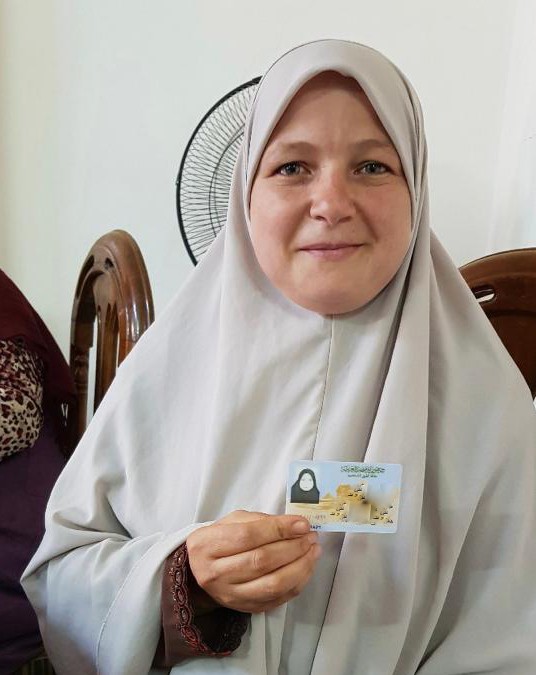In the words of Asmaa Emam: "After receiving my national ID card, now I am able to take effective steps in my life and the lives of my children"
Date:

Asmaa Emam, a 25-year-old divorced woman with two children, is one of the beneficiaries of the National Women’s Citizenship Initiative "Your ID, Your Rights”. Asmaa lives with her mother in the village of Qalamshah, Fayoum Governorate.
The National Women’s Citizenship Initiative "Your ID, Your Rights" is implemented by the National Council for Women and is in part supported by UN Women Egypt through the generous support of the Government of the United Kingdom. The Women’s Citizenship Initiative seeks to enhance women’s access to national ID cards and to raise their awareness about the services available so that they can perform their social, economic, and political role in society.
"I dropped out of school after completing the primary level and got married two years later. The marriage did not last long. After I gave birth to my two sons, I got divorced and went to live with my mother.
My mother is a simple illiterate woman. She depends on selling vegetables in the village as her main source of income. I felt the need to help her, and the first step I took was convincing her of the importance of learning how to read and write so that she could do better at her work and to protect her from being manipulated by others. My mother soon after enrolled in the adult literacy classes and now, she can read and write and is more confident in her money management.
Then, I began to think about how we could improve our lives and increase our income, as my ex-husband works as a street vendor and does not pay the alimony regularly. This is when my uncle guided and advised me to get a national ID card. He had learned that the National Council for Women provides support to women in need in accessing their national ID card and that this service is free of charge. I went to the Council’s branch in Fayoum, and they helped me to get my ID card issued.
After getting my ID card, I was able to take effective steps in my life and the lives of my children. First, I was able to help my children by issuing their birth certificates to prevent them from facing any difficulties in their future. Second, I was able to apply for a loan to start up my own small business. I can -now- provide a stable income for myself and my children. In the rural areas, there is a high demand for fodder, as most women in the villages raise livestock. My idea was to start up a small project in my house to produce fodder for livestock in the form of crushed feed or crushed grain, pack it into sacks and sell it. Indeed, I succeeded in that, and I have a list of customers, which guarantees me a permanent and sufficient source of income to support my family.”
Read in Arabic.